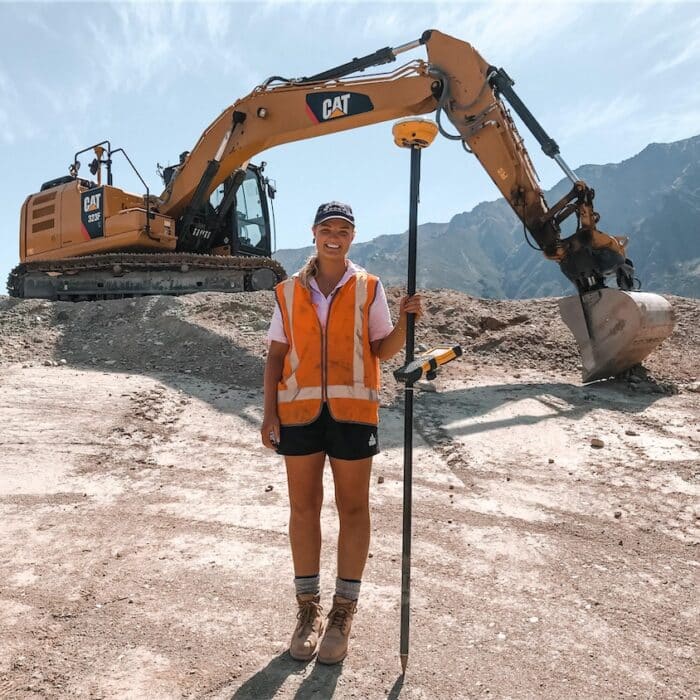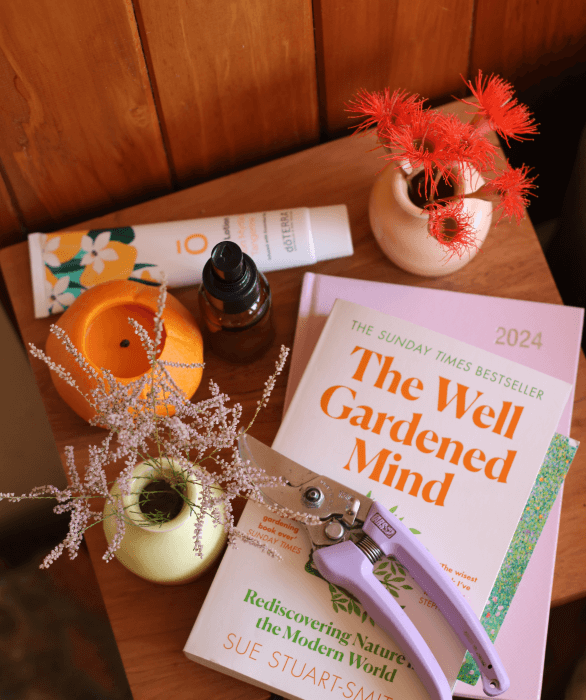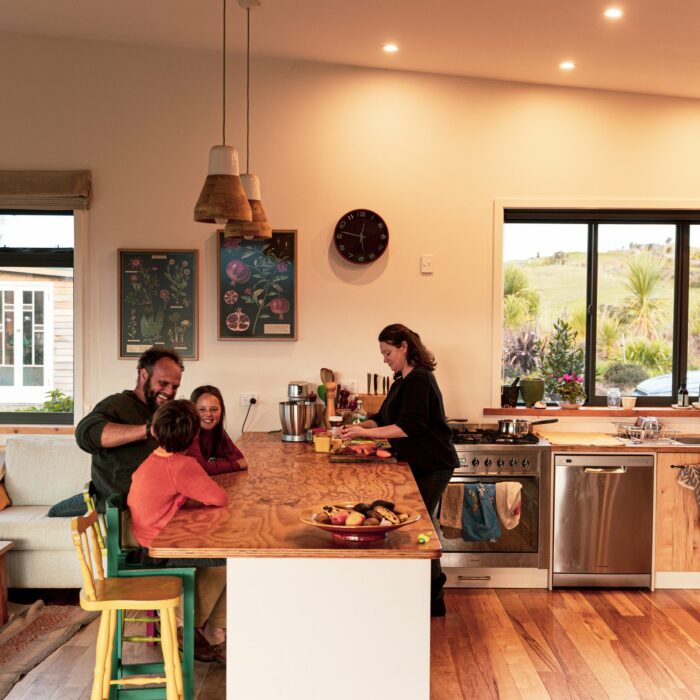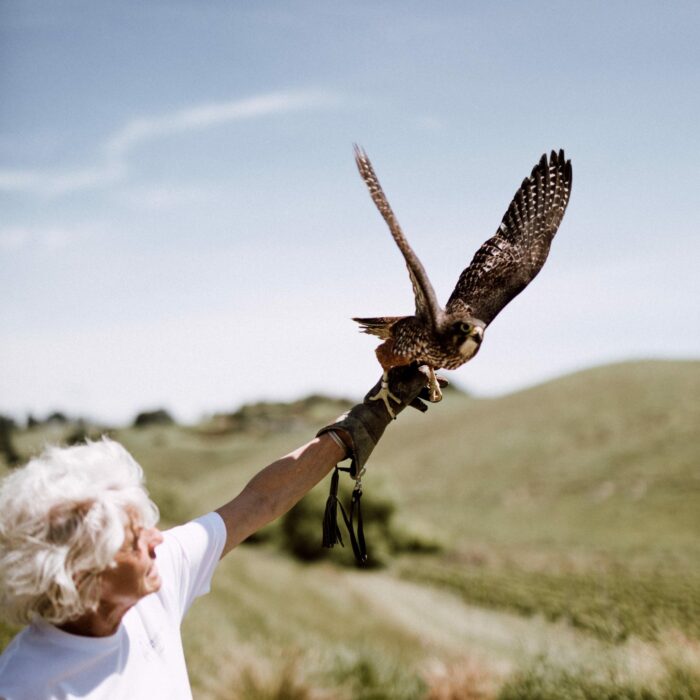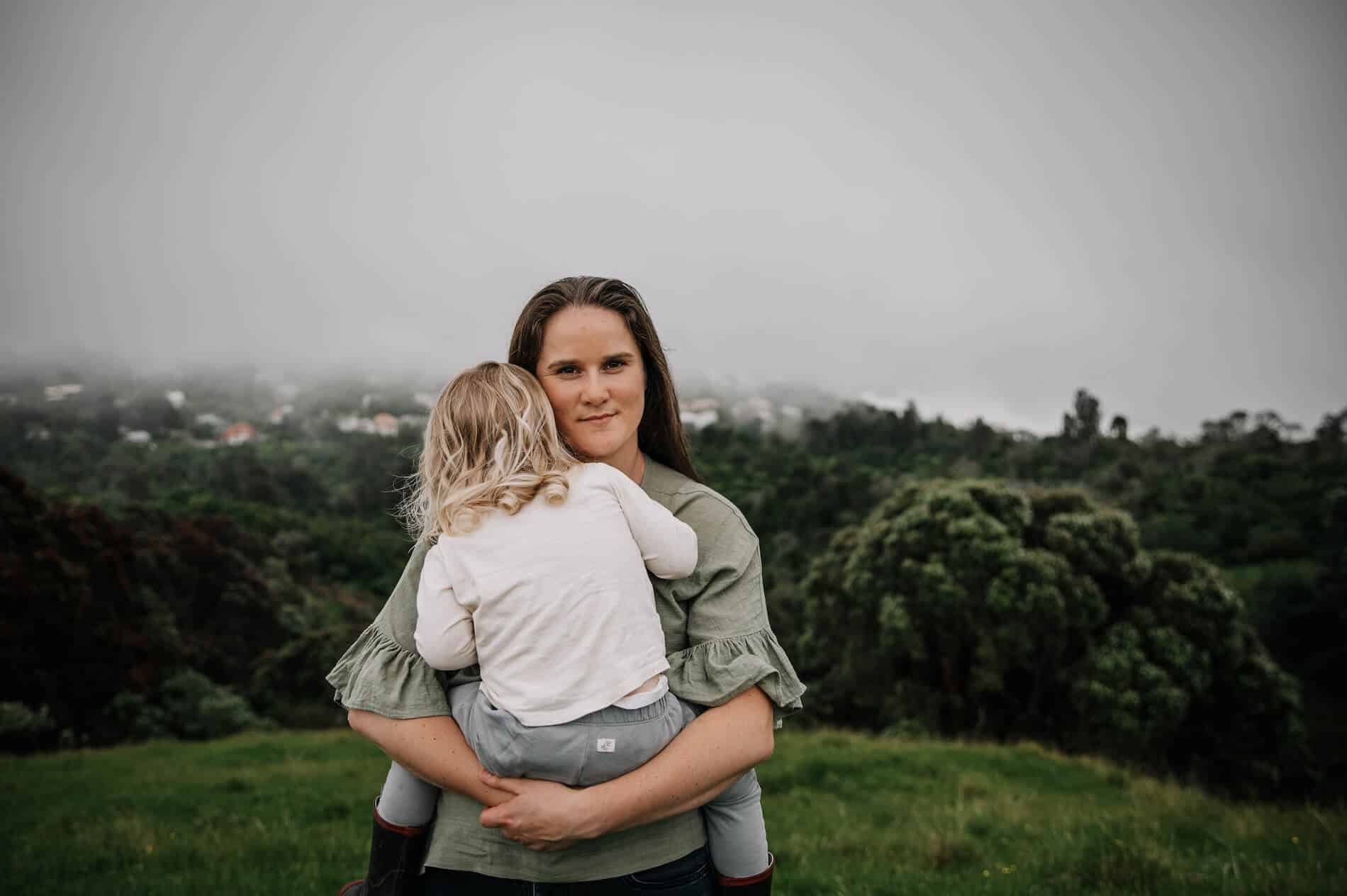
My daughter is a firecracker. She’s very similar to me – very sassy, very opinionated, very go! She’s a delight, and she loves being on the farm – feeding the dogs, feeding the chickens. She can’t count to ten yet but she can tell each dog to get up in their own kennels.
My partner is a sheep and beef farmer. We’ve been in Ōhope on a sheep and beef farm close to town for about a year, and spent three years before that living at the top of East Cape. The closest biggish town was Gisborne, and that was two and a half hours each way. I had split time between Hamilton and the Cape before I had my daughter, who arrived just as we came out of the first Covid lockdown in 2020. So then it was kind of self-imposed lockdown by nature of having a tiny baby dependent on me and living so remote.
The distance from friends and family was difficult. Rural healthcare was also difficult – limited doctors and a lack of choice and alternative providers. You get locums who come in for short stints, meaning it is hard to build up a relationship – and trust – with your health professional, which is particularly important when talking about mental health. There was no Plunket and Tamariki Ora, delivered through the local nurse, tended to focus on the baby in my case. Access to healthcare in a rural environment can be a huge issue generally as well as specifically for post-natal depression.
Living so remotely was hard with a young baby. Having a baby is full on and mums need breaks. My challenge was that when I did get a break by myself it was: “Where do I go?” I couldn’t just pop down to the coffee shop, I couldn’t duck out between feeds to get a haircut – those short breaks from a new baby who was full-on and didn’t sleep. I was left with quite a heavy feeling of being trapped. This then made me less likely to try to get out – a vicious cycle.
Pre-baby, I had a big career that I loved. I was here, there and everywhere. The change in my work life post-baby was a huge challenge. I went back to work part-time after six months’ maternity leave, and have incredibly supportive employers. But logistically, it wasn’t easy. There were limited childcare options and travelling for work was near to impossible. That was probably a key trigger for me. When I went back to work, it was not the same as pre-baby and I felt like I was failing at my job because of this difference, and it has been a huge adjustment for me.
I wasn’t diagnosed with post-natal depression until we moved to Ōhope when my daughter was eighteen months old, and by that stage it had been going on for at least a year. My friends and family knew I was struggling, but probably not the extent of it. I didn’t know how to vocalise it, how to ask for help or even what help I wanted. I didn’t want to feel like I’d failed. I would always tell myself I’d make a phone call the next day, but then the next day I’d feel a little bit better, and I’d talk myself out of it. I did have amazing support, but everyone was just so far away, and it felt like such an imposition to ask for help.
When we moved here, my friend called the local Plunket nurse and booked an appointment for me. I’d been to the doctor before, but each time it was a new doctor, and I’d find myself kind of dancing around the issue: “I’m a bit down, but I’m okay.” But I did break down in front of the Plunket nurse and she really was the catalyst for me talking to my doctor about it properly. From there, I had the support of the doctor and a counsellor, and the Plunket support as well.
Through this support, I was able to gain the mental capacity to process things logically. I’d already been doing my best to get outside every day, to get good sleep, but I was struggling to get on top of the mental, emotional and physical changes in my life. I’d had an amazing midwife. I have amazing family and friends, but I didn’t know what help I needed or how to ask it. My employers have supported me through the whole process, but work doesn’t look like it did before. The changes in my life had just got on top of me and I felt like I had lost myself. Trying to work out where you fit in around “partner, farmer’s partner, mum, employee” is hard.
The other big challenge about post-natal depression and anxiety is that you feel guilty, as though fundamentally you’re letting your child down. That feeling of “I love my child but I don’t love my life right now” can be complex to navigate. Because we are conditioned that you’re meant to love being a mum. That whole language and way of thinking needs to change; we need to be honest that motherhood can be incredibly tough and it’s okay to struggle at times. We don’t have to just talk about the good times. It is important to remember that post-natal depression and anxiety is never the child’s fault. You can love your child to pieces and still get post-natal depression. That was a key barrier for me in asking for help.
Nothing can prepare you for the mental burden of motherhood. There’s also the physical changes – the change in your hormone levels, the change in nutrients and general change in your situation and lifestyle. You’ve grown and birthed a tiny human. Those changes in your body are massive, not to mention a lack of sleep! You’re trying to process this huge emotional load in a body that’s depleted. So sometimes you need additional support to get you back up to a state where you can deal with things that prior to having a baby would have been a walk in the park.
You can end up in a position where you feel like you’re failing at being a mum, you’re failing at being a partner, you’re failing at work. I do regret not asking for help sooner. I put my relationships through a lot. Post-natal depression is very tough on partners, too. I wish I’d been in a headspace to enjoy some of those little moments more – some of them were so clouded with struggle and I wasn’t as present as I could have been.
I still have my triggers and my bad days but I’m emotionally more stable now, more resilient, so I’m better able to deal with those. I can tell myself that today is a tough day but it doesn’t need to spiral into “the world is ending”. I’ve recovered to a point where I can understand and process my thoughts and feelings. It’s definitely a work in progress – but that’s just life. It’s never going to be all sunshine and rainbows, and it doesn’t have to be.
If you are struggling, text or call 1737, Need to Talk? to get help.

This story is part of THREAD, a year-long project by Shepherdess made possible thanks to the Public Interest Journalism Fund through NZ On Air.
Related Stories
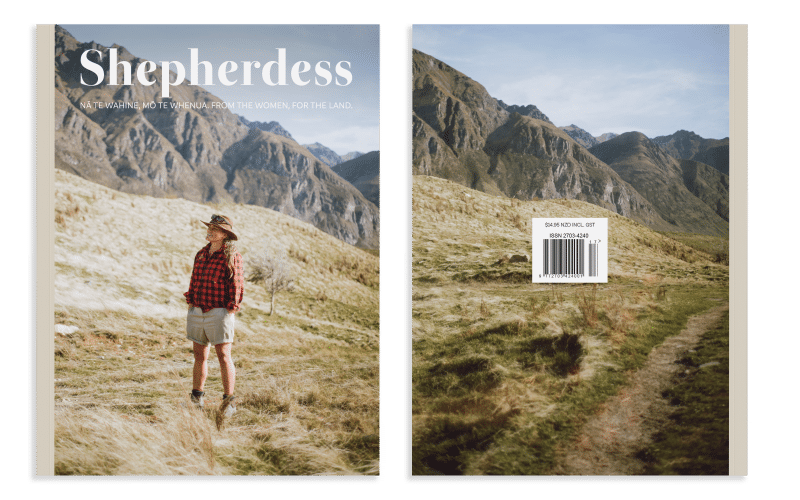
Out Now
Seventeenth Edition
Our beautiful Ngahuru Autumn 2024 Edition is out now!
